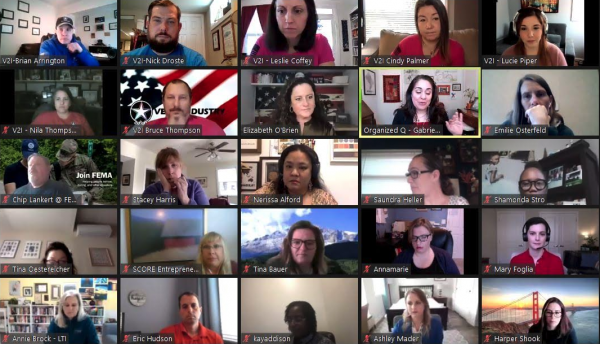
Are You a Veteran on the Job Market?
A Biotech Career Could Be the Perfect Fit
Transition from the military comes with a significant amount of soul searching. You just spent years in the noble pursuit of protecting those who cannot protect themselves, so what’s next? Prospects in the civilian world can lose some of their luster when compared to the mission of defending the country from all enemies, foreign and domestic. How do you go from that to working on a team that makes widgets and dongles for some random machine?
The solution to finding a career with similar purpose and meaning could await you in the life sciences industries, where we don’t make widgets. We make products that save, protect, enhance, and empower people every day, and we need veterans in our workforce to be successful.
The life sciences industry has exploded over recent years, and even more so recently in response to the COVID-19 pandemic. The industry has shown 16% total job growth since 2017 according to the 2021 CBRE Report, and shows no signs of slowing down. That growth translates into the need for leaders and innovators in a wide variety of positions.
There are many barriers that exist when it comes to taking advantage of this growth, some of which are self-imposed. The most common barrier I hear from transitioning military is “I don’t have any experience like that, I just blew stuff up for the last few years.”
Let me get this straight—in your military career, you never participated in:
Solving operational issues…
Driving productivity…
Leading and developing people…
Creating, implementing, and delivering products to schedule…
Supporting and enhancing processes….
Developing standard operating procedures and operating within regulated environments…or,
Performing root cause analysis and developing alternative methods?
The issue most often is not that veterans don’t have any related experience; the issue is that they don’t know how to express their experience in a way others can understand. Fortunately, there are hundreds of thousands of people that want nothing more than to help you succeed in your transition.
- Find a mentor. There are many groups that offer mentorship and training to transitioning/transitioned veterans, each with their own merits. An easy tool to use for career exploration and building networks is Veterati. At www.veterati.com you can search for short or long-term mentors in a wide variety of industries, including biotechnology. These shorter sessions can go far in helping you explore the options you may have in the industry.
American Corporate Partners (ACP, www.acp-usa.org) can provide more targeted, long-term mentorship with industry leaders to both the veteran and military spouse populations. Additionally, www.vets2industry.org provides tailored mentoring and resume support as well as a massive library of local and national resources and monthly networking sessions with recruiters and other veterans passionate about sharing their experience and networks with you.
- Leverage your resources. There are so many organizations out there looking to help that it can get overwhelming, but with a tactical approach to your transition you can set yourself up for success even before you receive your DD214. If you have the time and capability, learn everything you can about DOD SkillBridge programs that can work for you.
Check out www.fourblock.org , www.cmawarrior.org , www.hireheroesusa.org , www.commitfoundation.org, www.uso.org, and Onward to Opportunity (O2O) for some excellent tools in preparing you before, during, and after transition. All these resources are provided FREE to you and your family, so take advantage of them.
- Learn the language. Steps 1 and 2 can go so far in helping you understand the culture and terminology of your desired industry, but no one is going to sit in your stead for an interview. Knowing how to properly translate your military experience in a way that will excite and motivate recruiters and hiring managers who may have no experience with the military is the key to landing in a role that satisfies both you and your organization.
Take a few relevant job postings and look at the terminology used. Follow your targeted organizations on LinkedIn and read through their posts to learn about their missions and achievements (and connect with their recruiters). For terms you don’t understand, talk to your mentors from Step 1. Once you understand the vocabulary, put it to use on yourself by translating your resume and experience. Follow up with your mentors to check your translations and keep polishing them as you build your repertoire.
Following these steps is a great way to break into industries that may not be used to hiring veterans, but the work is far from done even after you land the job. Your attitude and work ethic will reflect not only you; it will set the standard for how your organization views veteran hires. Use every opportunity you can to show them the value of a veteran: get involved in the organization’s employee resource groups (or help them start one); volunteer for new opportunities; and most of all, pay it forward to your fellow veterans by sharing the tools and resources that made you successful.






